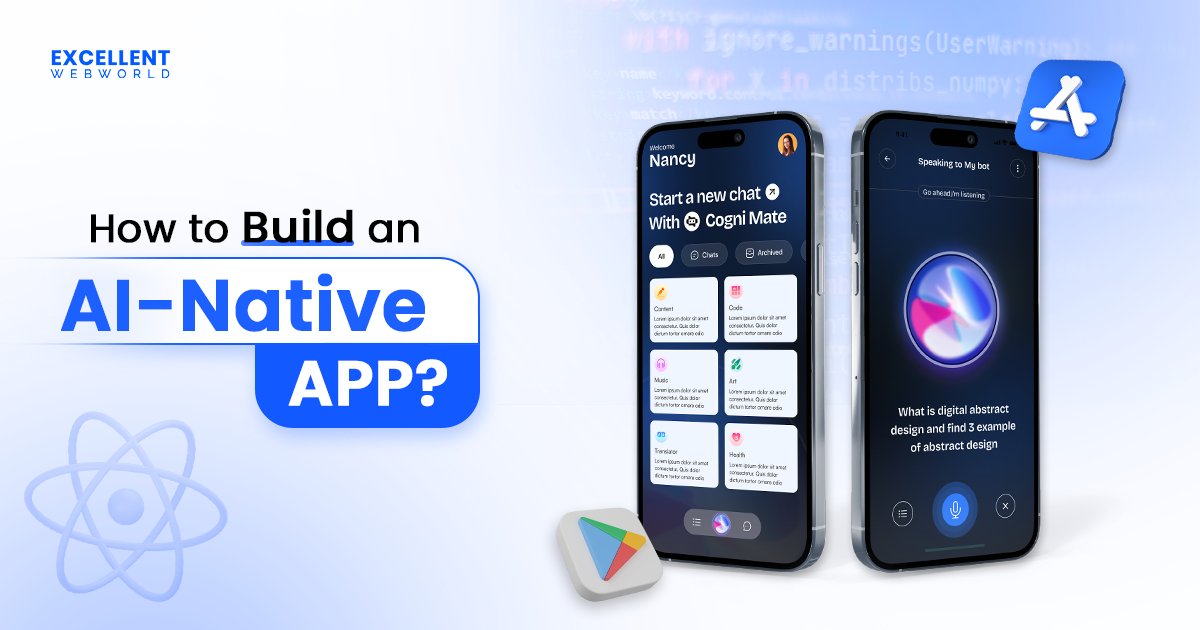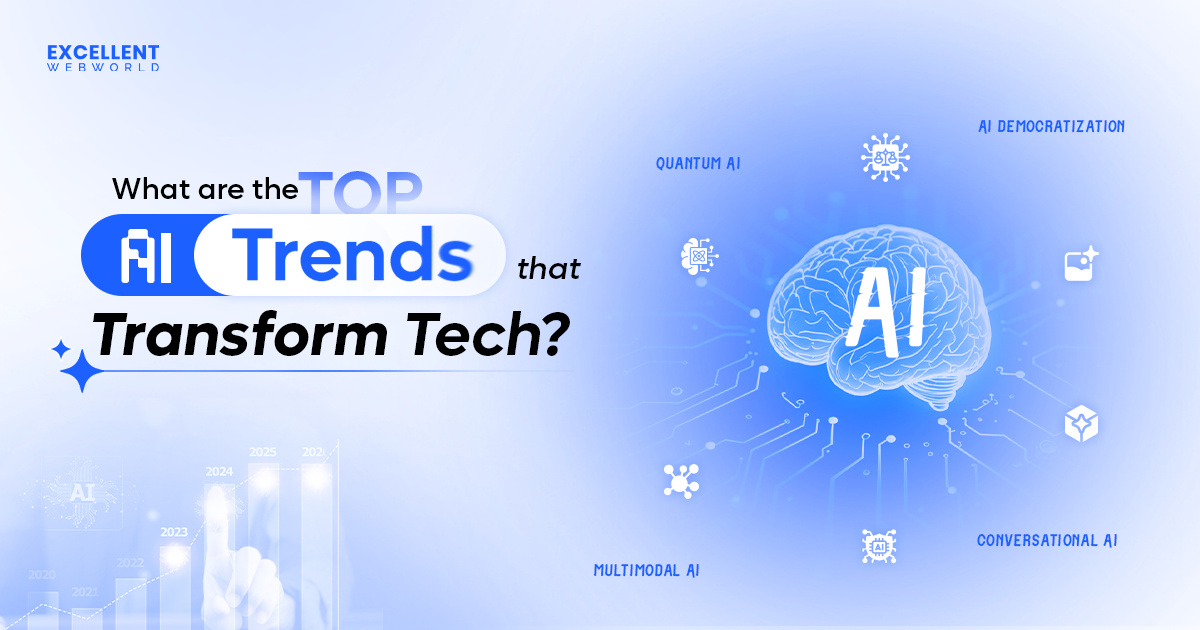What if your eCommerce store could predict what customers want, help them find it instantly, and even let them “try” it before buying? That’s precisely what today’s AI-driven competitors are doing.
Sephora’s AI-powered virtual try-ons, H&M’s AI demand forecasting, and ASOS’s visual search aren’t gimmicks; they’re everyday tools reshaping shopping experiences. Add in chatbots answering 24/7, and customer loyalty practically builds itself.
The benefits of AI in eCommerce go beyond efficiency; they unlock growth, personalisation, and profitability. In this blog, we’ll explore 21 ways you can harness AI to transform your store, delight customers, and finally compete at the same level as today’s most innovative retailers.
What are the Benefits of AI in eCommerce?
The benefits of AI in eCommerce allow you to lower prices, increase revenue, and streamline daily operations. Instead of wasting cash on trial and error, you get clean, statistics-backed ways to run your shop more effectively.
Let’s break down how AI brings these benefits to an eCommerce storefront:
- 1. Cost-Effectiveness
- 2. Increased Customer Loyalty
- 3. Enhanced Customer Service with Chatbots
- 4. Customized Shopping Experiences
- 5. Hyper-Personalization
- 6. Demand Forecasting and Inventory Management
- 7. Dynamic Pricing
- 8. Improved Fraud Prevention
- 9. Smarter Decision-Making
- 10. Increased Sales and Conversions
- 11. Optimized Operations
- 12. Contextual Targeting
- 13. Cross-Selling and Upselling
- 14. Increased Productivity
- 15. Enhanced Product Search
- 16. Targeted Marketing and Advertising
- 17. Smart Logistics and Warehouse Management
- 18. Streamlined Supply Chain Management
- 19. Conversational Commerce
- 20. Automated Product Descriptions
- 21. Seamless eCommerce Automation
1. Cost-Effectiveness
You slash operational costs while boosting profits through intelligent automation. Modern eCommerce development services integrate AI solutions that handle repetitive tasks currently draining your team’s time and energy.
Key benefits of AI-powered search in eCommerce include:
Sephora utilizes AI chatbots that handle 72% of customer inquiries automatically. It saves them millions in support costs while improving response times from hours to seconds.
2. Increased Customer Loyalty
You convert one-time consumers into repeat customers via personalized experiences that make buyers feel valued. Professional AI development services enable the creation of systems that analyse every customer’s preferences and craft personalized purchasing journeys.
The benefits of artificial intelligence in eCommerce for loyalty include:
Starbucks utilizes AI (Deep Brew) to analyze client purchase patterns and sends customized offers through its app. This approach improved loyalty program engagement and notably boosted repeat purchases.
3. Enhanced Customer Service with Chatbots
You provide 24/7 support without hiring additional staff or overextending your small team. AI chatbot development services create intelligent assistants that handle common questions, allowing your team to focus on more complex issues.
Here are the benefits of AI in eCommerce for customer service:
H&M’s chatbot handles customer inquiries automatically, including providing size recommendations and updating order status. It improved customer query resolution speed by 35% and reduced call center volume by 30%.
4. Customized Shopping Experiences
You transform generic browsing into personal shopping journeys that make customers feel special. AI use cases in eCommerce include analyzing individual preferences to show precisely what each visitor wants to see.
When you create a shopping app with AI personalization, you deliver:
Amazon’s AI recommendation engine drives 35% of its overall sales by displaying products to customers that they’re most likely to buy, primarily based on their precise shopping behaviour and purchase history.
5. Hyper-Personalization
One of the most significant benefits of AI in eCommerce is the ability to create tailored shopping experiences. You can create these experiences for each consumer by knowing their precise choices and buying patterns, as AI solutions analyze thousands of data points to deliver individualized content that feels handpicked for each visitor.
Hyper-personalization features include:
Stitch Fix’s eCommerce app utilizes AI to curate customized outfit boxes tailored to each client. Their algorithms examine fashion options, health remarks, and lifestyle facts to select items with 85% accuracy, resulting in higher customer satisfaction and retention.
6. Demand Forecasting and Inventory Management
You stop playing guessing games with your stock picks and start making smart decisions based on real facts. The role of artificial intelligence in eCommerce includes predicting exactly what products you’ll need and when you’ll need them.
When you implement AI forecasting and consider eCommerce mobile app design factors to increase your sales, you achieve:
Walmart utilizes AI demand forecasting to reduce inventory costs by $2 billion annually, while maintaining 98% product availability across its 10,000+ stores worldwide.
7. Dynamic Pricing
You maximize your earnings by adjusting costs automatically based on real-time marketplace conditions, rather than guessing what customers are willing to pay. Professional app development services help you build AI systems that analyze competitor prices, demand patterns, and consumer behavior to set the most effective pricing strategy.
When you implement AI-powered dynamic pricing, you unlock significant benefits of AI in business, including:
Uber’s AI pricing algorithm, revises the cost every few minutes based on demand, weather conditions, and driver availability, uplifting revenue during peak hours while maintaining customer satisfaction.
8. Improved Fraud Prevention
One of the key benefits of AI in eCommerce is protecting your store from fake orders and stolen credit cards that drain your profits and damage your reputation. AI and eCommerce work together to spot suspicious activities instantly, saving you thousands in chargebacks and refunds.
When the AI fraud detection also becomes a part of your eCommerce mobile app development cost calculations, you secure:
PayPal’s AI fraud detection system analyzes over 500 statistical points related to transactions across 400 million consumer bills, blocking $500 million in fraud quarterly. It maintains a fraud rate of 0.17-0.18%, which is significantly below the industry average of 1.86%.
9. Smarter Decision-Making
You stop making enterprise decisions based on gut feelings and begin using real data to drive growth in your business. AI analyzes your sales pattern, client behavior, and market trends to provide you with clear insights into what works and what doesn’t.
When you integrate AI analytics into your mobile app development approach, you get:
Netflix’s AI-powered recommendation system saves the company over $1 billion annually by retaining engaged customers and preventing them from canceling their subscriptions, demonstrating how informed data-driven decisions can immediately impact business profits.
10. Increased Sales and Conversions
You convert more browsers into shoppers by displaying the right products at the right moment. AI is aware of each client’s needs and guides them towards purchases they may love.
When you implement AI-powered conversion optimization, you achieve:
Shopify’s AI product recommendation tool represents successful examples of AI in eCommerce by analyzing customer behaviour to suggest relevant items, helping merchants generate 31% of their total revenue and lift conversion rates 4-5 times.
11. Optimized Operations
You streamline your entire business by automating time-consuming tasks that consume your whole day. AI handles recurring operations, together with order processing, customer support, and inventory updates, while you focus on growing your business.
When you leverage artificial intelligence in app development to automate operations, you achieve:
Zara utilizes AI-powered robotics for Buy Online, Pickup In-Store (BOPIS), automating the retrieval of 2,400 packages in its warehouse to reduce in-store waiting times, thereby optimizing daily operations.
12. Contextual Targeting
You display the appropriate products to the right customers at precisely the right moment, instead of losing money on random commercials. AI knows what each buyer wishes to buy based on their location, time of day, weather, and browsing habits.
When you implement AI-powered contextual targeting through a refined AI development process, you deliver:
Nike uses machine learning algorithms to analyze weather patterns, neighborhood events, and client behavior, promoting relevant athletic wear and increasing click-through rates by 20%, while boosting local revenue.
13. Cross-Selling and Upselling
You increase your average order value by suggesting products customers actually want, rather than random add-ons that annoy them. AI analyzes purchase patterns to recommend complementary items that make perfect sense together. Despite the initial AI development cost, this investment quickly pays for itself through higher sales per customer.
When you implement AI-powered cross-selling and upselling, you achieve:
McDonald’s Self-Order Terminals (SOTs) suggest menu add-ons and upgrades at drive-throughs based on order history and preferences. It led to a 1.9% increase in global comparable sales, marking 13 consecutive quarters of positive growth.
14. Increased Productivity
Among the key benefits of AI in eCommerce is the ability to multiply your team’s output by automating repetitive tasks that drain energy and time. AI handles product descriptions, order processing, and customer inquiries while your team focuses on strategic growth activities.
When you learn how to use AI in eCommerce for productivity enhancement, you gain:
Alibaba unveiled the fully automated “Future Warehouse,” where AI-driven robots work in collaboration with human employees. Implementing smart robots increased warehouse productivity by 70%, as machines operated continuously without downtime, thereby reducing the dependency on manual labor.
15. Enhanced Product Search
You help clients discover precisely what they want in seconds, rather than making them dig through countless product pages. AI-powered search is aware of natural language, allowing customers to type terms like “purple dressed for a wedding” and obtain accurate results.
When you implement these advantages of AI in eCommerce through search functionality, you provide:
Pinterest’s AI-powered visual search tool, Lens, processes 1.7 billion searches monthly, and it has become the default search engine for 36% of consumers, surpassing Google, showcasing the power of enhanced product search.
16. Targeted Marketing and Advertising
You stop wasting money on ads that reach the wrong people and start showing your products to customers who actually want to buy them. The role of AI in eCommerce marketing transforms scattered advertising efforts into profitable, data-driven strategies.
When you implement AI-powered targeted advertising, you achieve:
Coca-Cola’s AI marketing platform analyzes social media data and consumer behavior to create targeted campaigns across more than 200 countries, achieving a 20% increase in engagement, a 25% boost in online sales, and a 15% higher conversion rate.
17. Smart Logistics and Warehouse Management
You speed up order fulfillment and reduce shipping costs by letting AI optimize your entire supply chain. These strategic advantages of AI in online retail help you predict the best warehouse locations, manage inventory levels, and plan delivery routes automatically.
When you implement AI-powered logistics management, you achieve:
DHL’s AI-powered smart warehouses automate sorting and picking, enhancing the speed and accuracy of package handling. Predictive maintenance reduces downtime by up to 30%, while AI-driven demand forecasting cuts forecasting errors by 50%, optimizing logistics and boosting operational efficiency.
18. Streamlined Supply Chain Management
One of the major benefits of AI in eCommerce is eliminating bottlenecks and delays that frustrate customers by coordinating every step from suppliers to your warehouse. AI monitors your entire supply chain in real-time, predicting problems before they occur and automatically finding alternative solutions.
When you implement AI supply chain optimization, it delivers key benefits for businesses:
Unilever utilizes AI to optimize its supply chain across 400+ brands in 190 countries, enhancing product availability to over 98%, reducing manual forecasting efforts by 30%, and optimizing inventory distribution.
19. Conversational Commerce
You turn casual conversations into sales by letting customers shop through chat, voice, and messaging platforms they already use daily. AI automates these conversations to make them feel natural, while guiding customers toward seamless purchasing experiences.
Conversational commerce features include:
Domino’s allows customers to order pizza through their chatbot on Facebook Messenger, Slack, and even Twitter. Their AI handles 70% of orders without human intervention, resulting in a 30% reduction in order processing time and a 25% increase in customer satisfaction.
20. Automated Product Descriptions
You eliminate hours of writing product descriptions by letting AI create compelling, SEO-friendly content automatically. AI generates unique descriptions for thousands of products in minutes, freeing your team to focus on strategic tasks that drive business growth.
The benefits for customers through automated descriptions include:
eBay utilizes AI to assist 10 million sellers in creating 100 million listings with automated product descriptions. Their system creates unique, keyword-rich descriptions that ncrease search visibility by 40% across their marketplace.
21. Seamless eCommerce Automation
You run your entire store operations without constant manual oversight through intelligent automation that handles routine tasks. These are just some of the benefits of AI in eCommerce. AI connects all your business processes, enabling them to work together smoothly and allowing your team to focus on growth strategies instead of repetitive daily tasks.
Complete automation features include:
ASOS utilizes AI-powered automation throughout its supply chain, enhancing demand forecasting, inventory management, returns processing, and supplier management. This integration enables faster order fulfillment and reduces operational costs.
Why Choose Excellent Webworld for Integrating AI in Your eCommerce Storefront?
You need a partner who understands your struggles with cart abandonment, generic customer experiences, and overwhelming competition. Excellent Webworld specializes in AI-powered eCommerce solutions that solve exactly these problems for store owners like you.
We transform your store through:
Our team has helped over 200 eCommerce businesses reduce cart abandonment and lower customer service costs through the implementation of AI. We handle the technical complexity, allowing you to focus on growing your business.
Ready to compete with industry giants? Consult our experts to turn your eCommerce store into an AI-powered sales machine today.
FAQs About Benefits of AI in eCommerce:-
AI helps online stores better understand their customers, recommend products they’ll like, and automate tasks such as customer service. It makes shopping faster and more personalized while helping businesses save money and increase sales.
AI tracks your browsing, buying, and searching habits to suggest products that may interest you. It creates a personalized shopping experience for each person, displaying different products and deals tailored to their preferences and buying history.
AI automates repetitive tasks, such as answering customer questions, managing inventory, and processing orders. It means businesses require fewer staff for routine tasks and can operate more efficiently, thereby reducing overall costs.
AI helps online stores compete by providing better customer experiences and faster service. It’s becoming essential because customers expect personalized shopping and instant support, which AI can deliver 24/7.
AI is making online shopping smarter with features like chatbots, voice search, and predictive recommendations. It’s transforming how people discover products and how businesses understand and serve their customers.

Article By
Mayur Panchal is the CTO of Excellent Webworld. With his skills and expertise, He stays updated with industry trends and utilizes his technical expertise to address problems faced by entrepreneurs and startup owners.



